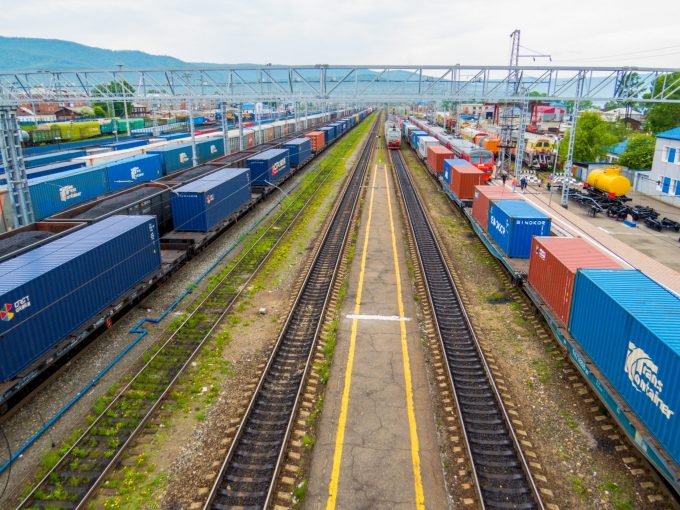Sam Warren elected first chair of BIFA sustainability policy group
Sam Warren (above, right), sustainability manager at UK freight forwarder Woodland Group, has been elected ...

European supply chains are coming under increasing strain as war in Ukraine moves towards its third week with limited signs of resolution.
Supply chain consultancy Woodland Group told The Loadstar it was seeing the impact intensify across all transport modes as the sector makes efforts to minimise disruption in an already disrupted market.
A spokesperson said: “The maritime crisis intensifies as ports become blocked, imports and exports stall and sanctions result in tankers being pulled from charter markets.
“Their removal is seeing spot rates and transport costs climb and, inevitably, is adding to the price of global freight movements across modes. In the UK, we are already seeing the impact.”
UK haulage companies are implementing emergency fuel surcharges of up to 10% to cover escalating fuel costs, adding to an already strained market. Decades-long failures of investment were exposed last year as European drivers fled the country after Brexit, adding to driver shortages.
In Europe, the Woodland spokesperson noted, drivers caught in delays were contending with poor facilities, including a lack of food, security and sanitary provisions.
“Then there is rail freight,” said the spokesperson, which has halted, as the route includes China-Europe rail freight, of which some “50% of all EU-bound traffic enters via Russia and Belarus”.
He added: “Air cargo too is facing issues, with many flights being rerouted impacting traffic between Europe and Asia and adding to the difficulties encountered during the pandemic.”
Compounding issues for the air freight sector is the resurgence of Covid, particularly in China, which on Monday announced Shanghai Pudong Airport would close to inbound passengers for six weeks after case numbers again began climbing.
While the decision does not affect freighters, the diminished belly capacity will reduce available freight space.
The energy and fuel sector remains the worst-affected by the war, but with major brands in automotive and fashion having pulled out of Russia, they too are seeing an impact, but “changes in supply chain flow” are expected to hit all sectors soon.
Despite negative business effects, the supply chain community has rallied around Ukraine in the crisis and has been largely supportive of the sanctions against Russia.
Comment on this article